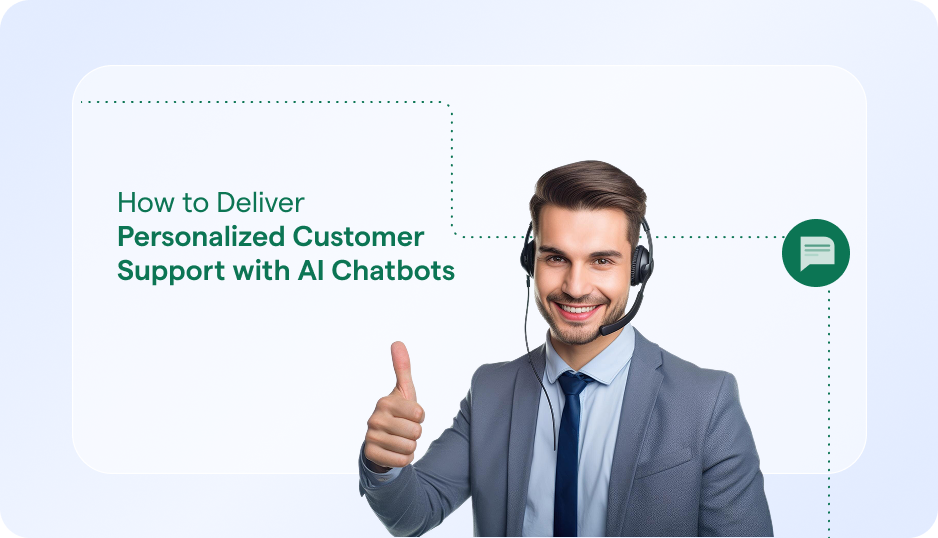It is impossible to overstate the importance of providing a good customer experience (CX). Buyers now consider personalized experience as important as usability and functionality when choosing a product; in fact, 88% consider it a criterion for brand loyalty.
Organizations now understand the benefits of improving their customer experience, but doing so is easier said than done. Many moving parts—collecting data, personalization, customer support, and automation—must work harmoniously to meet customer expectations at every touchpoint.
To meet up, one must turn to customer experience tool to optimize every step. These tools streamline every aspect of a customer’s interaction, from initial engagement to advocacy. They don’t just make it easy to reach customers—the best ones collect data, integrate with other tools, and simplify workflows so that you can deliver a great experience without overextending your team.
In this post, we’ll review 12 of the best customer experience software, their key features, and their pricing.
What is a Customer Experience Platform?
A Customer Experience Platform (CEP) is a comprehensive solution that enables businesses to manage and optimize the entire customer journey across multiple touchpoints and channels. It typically integrates customer data, analytics, and engagement tools to help businesses understand, personalize, and improve the overall customer experience.
The goal is to drive personalized engagement, enhance customer satisfaction, and increase loyalty.
Best Customer Experience Platform at a glance (Comparison table)
| Name | Starting price | Free trial | Features |
| Helpshift | from $150/month, Includes unlimited agent seats | 30 days |
|
| Zendesk | From $19 per agent/month | 14 days |
|
| HelpJuice | From $120 for up to 4 users/month | None |
|
| Podium | Starts from $249/month | 14 days |
|
| HelpScout | From $25 per user/month | 15 days |
|
| HubSpot Service Hub | From $100/month per seat | None |
|
| LiveChat | From $24 per agent/month | None |
|
| Drift | From $2500/month | None |
|
| Salesforce Customer 360 | From $25 per user/month | None |
|
| Qualtrics XM | From $1500/year | None |
|
| Freshdesk | From $15 per agent/month | 21 days |
|
| Plerdy | From $98/month | 14 days |
|
12 Best Customer Experience Software in 2025
Delivering delightful customer experiences starts with choosing a reliable customer experience software. Here is a compilation of twelve top-rated customer experience management platforms to consider for your business.
1. Helpshift (Best AI-powered customer experience software)
Helpshift is a comprehensive global support solution that seamlessly blends AI capabilities with human collaboration. It is an AI-first, omni-channel, and cross-platform solution that enhances customer experience by understanding and connecting every step of the customer journey. In a centralized dashboard, support agents and admins can access diverse tools that help them access information faster, provide support, and gain insights into their support operation.
Here are some Helpshift features you can use to create a better customer experience:
Key Feature 1: Centralized Operations dashboard
Helpshift offers a centralized operations dashboard, enabling agents to track ticket queues, monitor team activity and performance metrics in real-time. Agents can communicate in any supported language without hiring additional language-specific staff using real-time translation.
Helpshift also simplifies ticket handling. Tickets can be auto-assigned and routed to available agents for balanced workloads and quicker resolutions.
Many agents find adopting a new software platform challenging due to the stress of learning how to use it. With Helpshift, that’s not the case. It is easy to set up and use, and understanding the dashboard requires no technical skill.
Key feature 2: AI Chatbots and Automation
As support agents manage an increasing volume of customer interactions, the need for automation becomes essential.
Conversational AI chatbots provide personalized customer interactions without human intervention using natural language processing (NLP). Chatbots provide customers with instant answers 24/7 based on support content. If the problem is complex, they seamlessly hand it off to your human support team.
Help bots are an awesome feature in Helpshift. With the built-in visual bot builder, you can create custom bots—without coding—to perform routine tasks.
Key Feature 3: Multilingual Customer Support
Helpshift’s language AI translates messages for users and agents on the fly, removing language barriers and leading to faster query resolution. Language AI can understand customer intent in 150+ languages and ensure they’re properly routed to the right agent or workflow.
Language AI also translates Help Center articles with a single click, making it accessible to a global audience. This reduces costs and dependency on third-party translation services.
Further, Helpshift’s multilingual chatbots can understand, respond, and resolve issues in various languages, allowing businesses to reach a global audience.
Key Feature 4: Analytics and Reporting
Helpshift offers integrated reporting tools within the platform, providing real-time analytics, actionable insights, and customizable reports. These analytics dashboards offer a comprehensive overview of support operations, covering everything from chatbot performance to agent productivity.
With Helpshift’s Power BI integration, you can create custom reports without needing a developer. Conversation metrics like Time to Resolve (TTR) and Time to First Response (TTFR) help gauge the effectiveness of support processes.
Detailed analytics enable you to evaluate agent performance and pinpoint areas for improvement. Real-time insights into queue and team performance allow you to effectively monitor open issues, track agent availability, and optimize resource allocation accordingly.
The platform enhances self-service efficiency and chatbot performance by tracking key metrics such as FAQ views, searches, engagement, deflections, and use feedback while continuously refining your knowledge base.
Key features 5: AI-powered classification and Intent Detection
Helpshift’s intent detection feature has an accuracy rate of up to 95%, enabling AI chatbots to resolve 70% of tickets successfully. This efficiency frees agents to focus on high-value tickets and queries requiring rational oversight. With the ‘Smart Intent feature, requests are classified by intent as customers open new tickets, automatically directing them to the appropriate workflow or agents. This balances out the workload for agents and speeds up their response time.
Key feature 6: AI-powered answers
Helpshift leverages “Generative AI” technology to deliver reliable answers instantly. This feature derives answers directly from your knowledge base and provides detailed responses to various issues.
Traditional automation solutions rely heavily on rules-based systems to provide predefined responses to inquiries. They face limitations when encountering unfamiliar queries or scenarios that don’t align with predefined rules. Even when they provide assistance, their language tends to be rigid and unnatural. In contrast, Generative AI has the capability to comprehend complex questions and respond in a more natural, conversational manner. However, it’s susceptible to hallucinations and may provide misleading answers.
To address these challenges, Helpshift utilizes the Retrieval-Augmented Generation (RAG) technique, powered by its Quick Search Bot, to enhance the accuracy and reliability of its AI-powered responses. RAG allows for transmitting additional information alongside the instructions in the Large Language Model (LLM) prompt, enabling more precise and dependable answers.
It continuously learns from interactions, ensuring a seamless customer experience. For complex issues, the bot seamlessly connects the customer to a live agent for personalized assistance.
Pricing: from $150/month with unlimited agent seats
Free trial: 30 days
2. Zendesk
Zendesk is cloud-based customer support software that enables users to provide personalized services on any device. It consolidates customer interactions across multiple platforms in a single window, allowing companies to monitor their users throughout the customer lifecycle. Zendesk’ seamlessly integrates with popular business tools like Jira, Trello, and Clickup.
However, Zendesk is sharply criticized for its hidden costs, leaving companies that want to scale down usage stuck with expensive contracts for prolonged periods. Also, users are charged on a per-usage and per-agent basis for many of its features, such as AI agents, Answer Bot Resolution, and third-party add-ons. This drawback plays spoilsport for companies that want to streamline and scale their customer support and experience operations.
Key features:
- Omnichannel support for multiple channels
- Comprehensive reporting
- Self-service option is available using the knowledge base
- AI-powered chatbot.
- Extensive list of third party integrations
Pricing: from $19 per agent/month
Free trial: 14 days
3. HelpJuice
Helpjuice offers a comprehensive customer experience platform that enables businesses to create, organize, and share internal and external knowledge bases. Companies can create a centralized knowledge base so employees can store internal knowledge, contribute to it, and access its content.
Helpjuice is a good fit for any industry and provides customizable solutions for customer support, sales and marketing teams.
Key features:
- Self-service knowledge base for internal teams and customers
- Version control
- Great collaboration among team members
- Tool integrations with Freshdesk, Salesforce, Slack, and Zapier.
Pricing: from $120 for up to 4 users/month
4. Podium
Podium is a customer interaction platform designed to help small and medium businesses improve their online reputation. It facilitates customer relationship management by providing businesses with various tools, such as live website chat, payment processing, and text marketing.
Podium gives customers access to built-in omnichannel functionality, allowing agents to chat with customers through SMS, MMS, and social media channels like Facebook. With the unified inbox, businesses can engage with customers in real time and manage customer interactions in one place without switching apps.
Key features:
- Real-time messaging and communication tools are available via SMS, social media channels, and webchat.
- Analytics and reporting tools to track key metrics
- Review management to manage online reviews on Google, Facebook, and Yelp
Pricing: starts from $249/month (up to 3 team members). The standard package is $399/month
Free trial: 14 days
5. HelpScout
HelpScout is a customer support software solution designed to streamline customer service operations for businesses of all sizes. It works great for technology, software, and e-commerce businesses. Therefore, it is ideal for businesses with a significant online presence, as it can handle high volumes of customer requests.
Key features:
- Beacon messaging tool to help customers get answers faster.
- Extensive customer data management
- Can create customer profiles automatically.
Pricing: from $25 per user/month
Free trial: 15 days
6. HubSpot Service Hub
HubSpot Service Hub is a cloud-based platform for managing and monitoring customer service interactions via a single platform. With impressive features such as reporting, customer feedback, knowledge base, tickets, and conversation management, this platform allows users to deploy surveys to get customer feedback that can be used to enhance the customer experience.
Key features:
- Email reply tracking
- AI-powered companion ChatSpot is optimized for auto-captions of dialogs and highlights key details.
- Omnichannel communications
Pricing: from $100/ month per seat
7. LiveChat
LiveChat is a CRM tool designed to connect customers with human support representatives. It allows real-time engagement with visitors to your website or via social media platforms, a great alternative to emails or phone calls. The customer experience management analytics platform possesses elements of web analytics, live chat, and help desk abilities to improve customer interactions.
Key features:
- Sneak-peek: This allows agents to preview customer messages before they hit send.
- Multilingual support
- LiveChat widget for website without coding
- Integration with third-party software.
Pricing: from $24 per agent/month
8. Drift
Drift is a chatbot application for email management, in-app messaging, and live chat to drive conversations and boost customer engagement. Its goal is to use customer data to humanize the entire customer experience. With this customer engagement tool, businesses can connect with their customers better and faster.
Key features:
- Real-time conversations with customers via live chat
- Integrates with Salesforce to manage leads
- Reporting and analytics for higher customer satisfaction
Pricing: from $2500/month
9. Salesforce Customer 360
Salesforce Customer 360 is a robust integrated CRM platform that eliminates fragmented data by creating a centralized data hub to optimize business processes. It connects an organization’s different departments, including sales and marketing, and allows them to synchronize their customer data for improved performance.
Key features:
- Personalized service across different channels using Service Cloud
- Actionable insights for informed business decisions using Analytics Cloud
- Create a unified customer profile with Customer 360
Pricing: from $25 per user/month
10. Qualtrics XM
Qualtrics is a customer experience management platform designed to collect, organize, and understand relevant data for customers and sales teams. It is all about better understanding customer experiences so you can take the right actions, using better customer insights into trends and patterns.
Key features:
- Ticket management
- Advanced routing
- Integrations
- Omnichannel support
Pricing: from $1500/year (subscription based)
11. Freshdesk
Freshdesk is an online, cloud-based customer support software specialising in help desk support. It uses smart automation for faster service delivery. It works great for businesses that increase customer engagement and monitor customer behavior.
Freshdesk offers a knowledge base, forum and support ticket systems, and several customer experience features, such as analytics and team collaboration tools.
Key features:
- Automation to simplify complex processes
- Knowledge base access
- Chatbots providing help desk service for customer interactions
Pricing: from $15 per agent/month
Free trial: 21 days
12. Plerdy
Plerdy is a web analytics and conversion rate optimization (CRO) tool for website owners, marketers, and designers. It offers heatmaps, SEO analytics, and session recordings as some of the tools to observe user behavior and address customer pain points with more informed, data-driven decisions.
Key features:
- Collect customer feedback using forms
- Analyze website SEO for optimized customer experience
- Monitor clicks and interactions
Pricing: from $98/month
Free trial: 14 days
How to choose customer experience software for your business?
Each customer experience platform you’ll find on the market has slightly different features to offer, depending on the purpose for which they were created for. To help you select the best customer experience platform, here are some features that must be on your checklist.
AI-powered customer Intent detection
AI-powered Customer Intent detection empowers users to navigate support effortlessly. It analyzes common queries and presents users with a menu of most common problems, allowing them to self-select their issue and guiding them to the right information for quicker resolutions. This enhanced self-serve experience enables agents to focus on tickets that require their attention. Multilingual Intent detection allows you to provide around-the-clock support regardless of time zones or languages spoken, without any delay, making it ideal for global support operations. When evaluating support tools, assessing intent detection rates is crucial; low rates hinder automation efficiency.
In-app support
Your customer experience platform must provide in-app support features to facilitate interaction between your business and customers. These features must allow customers to easily access your support team from your app or website through live chat, knowledge base, ticketing system, or feedback forms.
AI-powered bots and workflows
AI-powered bots and workflows are handy for handling repetitive questions and streamlining various aspects of customer interaction without human intervention. This feature helps agents save significant time by:
- Providing automated responses to common issues so agents can have more time to handle complex issues
- Automate ticket handling and routing to balance agent workload and reduce wait time
Multi-lingual support
A language barrier shouldn’t stop you from delivering the best customer experience solutions to your customers. So, when choosing a CX platform, look for one with multilingual support capabilities to cater to a diverse customer base.
The right CX platform should allow customers to self serve and communicate in their preferred language. For example, Helpshift supports over 180 languages for agents to provide customer support in multiple languages.
Integrations
Most support teams use multiple tools for customer interactions, such as help desk software, CRM, social listening tools, or multi-channel tools. The CX platform you choose must integrate seamlessly with third-party apps. This will help you collect relevant data at various touchpoints and create a unified view of your customer journey on a centralized dashboard.
Self-service
The CX platform you choose must provide 24/7 self-service options to help customers so that they get immediate answers to their queries. This includes features such knowledge base article and chatbots, allowing customers to get the information they need promptly without waiting for the support team. Shorter time-to-resolve means your customers are happier, thereby reducing the churn rate.
Analytics & reporting
Your CX platform is incomplete without analytics and reporting functionality. The ideal contact center platform should have a dashboard and great analytics, so you can access support data in real-time.
User experience
How easy is it to navigate across the dashboard of the customer experience software? If it takes longer than necessary to find an important feature, that’s a bad user experience. The right customer experience software has an intuitive interface and must be easy to learn—even by a beginner.
Final Thoughts
Your customer service software is important for the smooth operation of your support team and overall customer success.
Helpshift is impressive customer engagement software for boosting productivity and customer satisfaction. If you’re keen on improving your brand’s reputation, request a demo right now to see how Helpshift can help your business.
Do check How Rovio from 23 Games Implemented Helpshift:

FAQs
What is a customer experience platform (CEP), and why do I need one for my business?
A customer experience platform empowers your business to improve every aspect of a customer’s relationship with an organization, enabling you to deliver personalized customer experiences.
How do I know if my business needs a customer experience platform?
Your business needs a customer experience platform if you want to build customer retention by understanding their pain points and responding proactively.
What key features should I look for in a customer experience platform?
Some key features your customer experience management software should have are knowlede base, help desk and AI and automation, chatbot, analytics and reporting, omni-channel and cross platform support.




